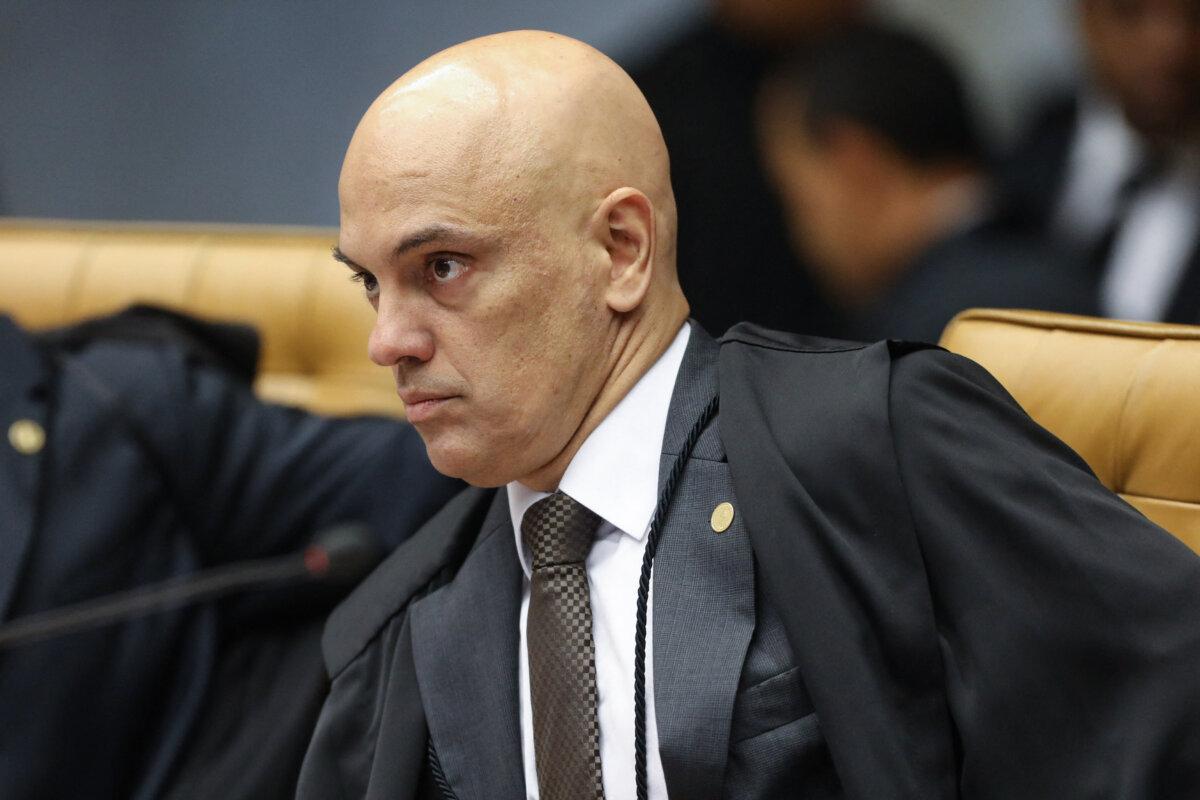Brazilian Supreme Court Mandates Closure of Elon Musk’s X Company
The Supreme Court of Brazil has fully suspended Elon Musk’s social media platform X in the country for noncompliance in appointing a local legal representative.
The Supreme Court of Brazil has ordered the full suspension of Elon Musk’s social media platform X in the country for refusing to name an in-country legal representative.
Brazil’s Justice Alexandre de Moraes issued the order on Aug. 30, putting millions of users of the platform in Latin America’s biggest economy on track to be cut off.
De Moraes’s order, which gives internet service providers and app stores five days to block access to X, also announced a daily penalty of $8,900 for users in Brazil who use a virtual private network to evade the ban.
In his decision, de Moraes said X will remain blocked until it complies with his orders.
“Elon Musk showed his total disrespect for Brazilian sovereignty and, in particular, for the judiciary, setting himself up as a true supranational entity and immune to the laws of each country,” de Moraes wrote.
“Soon, we expect Judge Alexandre de Moraes will order X to be shut down in Brazil—simply because we would not comply with his illegal orders to censor his political opponents,” X said in a statement, in which the platform claimed that de Moraes had threatened X’s Brazilian legal representative with imprisonment and later froze all her bank accounts.
Musk, who has accused Brazil of censorship, was included in a criminal inquiry into individuals who allegedly spread false information about Brazil’s election and justice system.
The Aug. 30 suspension order follows de Moraes’s Aug. 28 order that gave X just 24 hours to appoint a new legal representative for X Brazil in response to a petition filed against the company. In the Aug. 28 order, the judge warned that failure to comply would result in the platform’s suspension.
X did not respond to a request for comment on the suspension order.

Brazilian Supreme Court judge Alexandre de Moraes is pictured at the Supreme Court in Brasilia, Brazil, on April 4, 2018. Victoria Silva/AFP via Getty Images
X said in its Aug. 29 statement that it plans to publish all of de Moraes’s demands and all related court filings in the coming days in the interest of transparency.
“Unlike other social media and technology platforms, we will not comply in secret with illegal orders,” X wrote. “To our users in Brazil and around the world, X remains committed to protecting your freedom of speech.”
Authorities in Brazil have previously ordered telecommunications providers to block access to certain websites or face daily fines.
While Musk has accused Brazil of censorship, Brazilian authorities insist that X is breaking the country’s internet laws.
Earlier this year, de Moraes ordered X to block certain accounts amid investigations into so-called digital militias accused of spreading fake news and hate messages during the government of former President Jair Bolsonaro.
Last year, a federal judge in Brazil ordered a temporary suspension of messaging app Telegram, citing the social media platform’s alleged failure to provide all information Federal Police requested on neo-Nazi chat groups.
In 2016, a Brazilian court issued a nationwide ban on the messaging app WhatsApp, which had over 100 million users, for 72 hours.
Owner Meta had failed to provide encrypted information requested in a police investigation, the fourth block ordered against WhatsApp in Brazil since February 2015.
At the time, the court ruled that providers that do not cut off access to WhatsApp be fined the equivalent of $15,300 a day until they comply.
According to market research group Emarketer, some 40 million Brazilians, roughly one-fifth of the population, access X at least once per month.
Owen Evans and The Associated Press contributed to this report.



